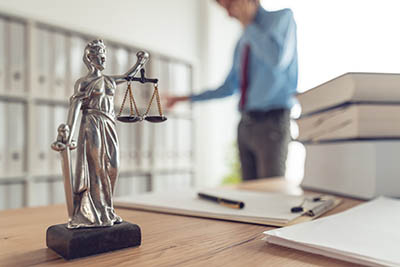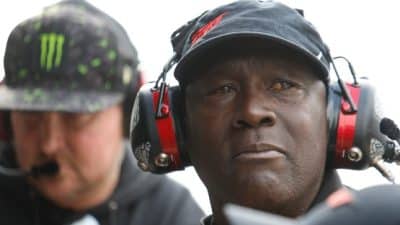
Criminal defense lawyers defend individuals and companies charged with illegal activity.
In the United States, criminal lawyers deal with issues surrounding the arrest, investigation, charges, sentencing, appeals, and post-trial matters. Attorneys often specialize in niches (DUI or drug defense) and may work for the federal, state, or local government or privately.
Types of crimes that a criminal defense lawyer might handle
Defense lawyers often take on cases where a person has been charged with a crime that could lead to imprisonment for at least 6 months. Once a person has been accused of said crime, they receive the constitutional right to an attorney, regardless if they’re innocent or guilty.
A defense lawyer safeguards a person’s constitutional rights and attempts to prove plausible deniability (no clear evidence to prove a person’s involvement) in various crimes.
For example, the Middlesex defense attorneys of the law offices of Jonathan F. Marshall specialize in criminal defense and DUIs. However, most law offices will hire attorneys from multiple disciplines, including drug crimes, assault, domestic violence, and sex crimes.
Criminal defense lawyers will defend people with misdemeanor or felony charges. If a crime is a “wobbler” (a felony crime that could be reduced to a misdemeanor), a defense lawyer will try to reduce the sentence in the initial trial or at a later date for non-expungeable felonies.
How a defense lawyer fits in the criminal trial process
A defense lawyer can be hired before or after the investigation process. People who hire pre-investigation lawyers typically have an attorney on retainer or have a high cash flow.
Upon arrest
If a case starts with an arrest, a defense lawyer will be assigned or hired to act as the defendant’s legal representation. Depending on the nature of the crime, the defense lawyer may meet with the prosecutor to convince them to dismiss the case before it goes to trial.
Before the defense lawyer approaches the prosecutor, they may deal with police or other investigators to find evidence that negates potential charges from the prosecutor’s client. Once the case is formally filed, the lawyer will then conduct a formal investigation of the case.
Arraignment
At this stage, the defendant can choose to plead guilty or not guilty. If the defendant pleads guilty, the defense lawyer may discuss a plea bargain, which often involves less severe charges. If the defendant pleads not guilty, the judge will decide if the case should be dismissed.
Upon arrest
If the case isn’t dismissed, the accused enters adjudication. This is where the defense counsel presents the case to the judge and/or jury. In the case of a misdemeanor, a direct trial is held. But a person accused of a felony will go through an (often lengthy) preliminary hearing process.
If the preliminary hearing process isn’t settled with a plea bargain, it proceeds to a direct trial.
Should I become a criminal defense lawyer?
Becoming a criminal defense lawyer requires a lot of skill and education. If you’re seriously interested in passing the bar, you should be able to network, problem-solve, endure the grind, be independent, self-disciplined, work well with others, and have strong negotiation chops.
Keep in mind that careers in law aren’t as glamorous as they seem in the movies. It takes years of hard work before you can tackle high-profile trials, so you need to be suited for the task.
It’s important to note that your clients may not always be innocent. You may need to defend people who have done things you’ll find morally abhorrent. At the same time, you may cause an innocent man to go to jail. You have to be okay with holding someone’s life in your hands.
Story by Jessica Perkins










